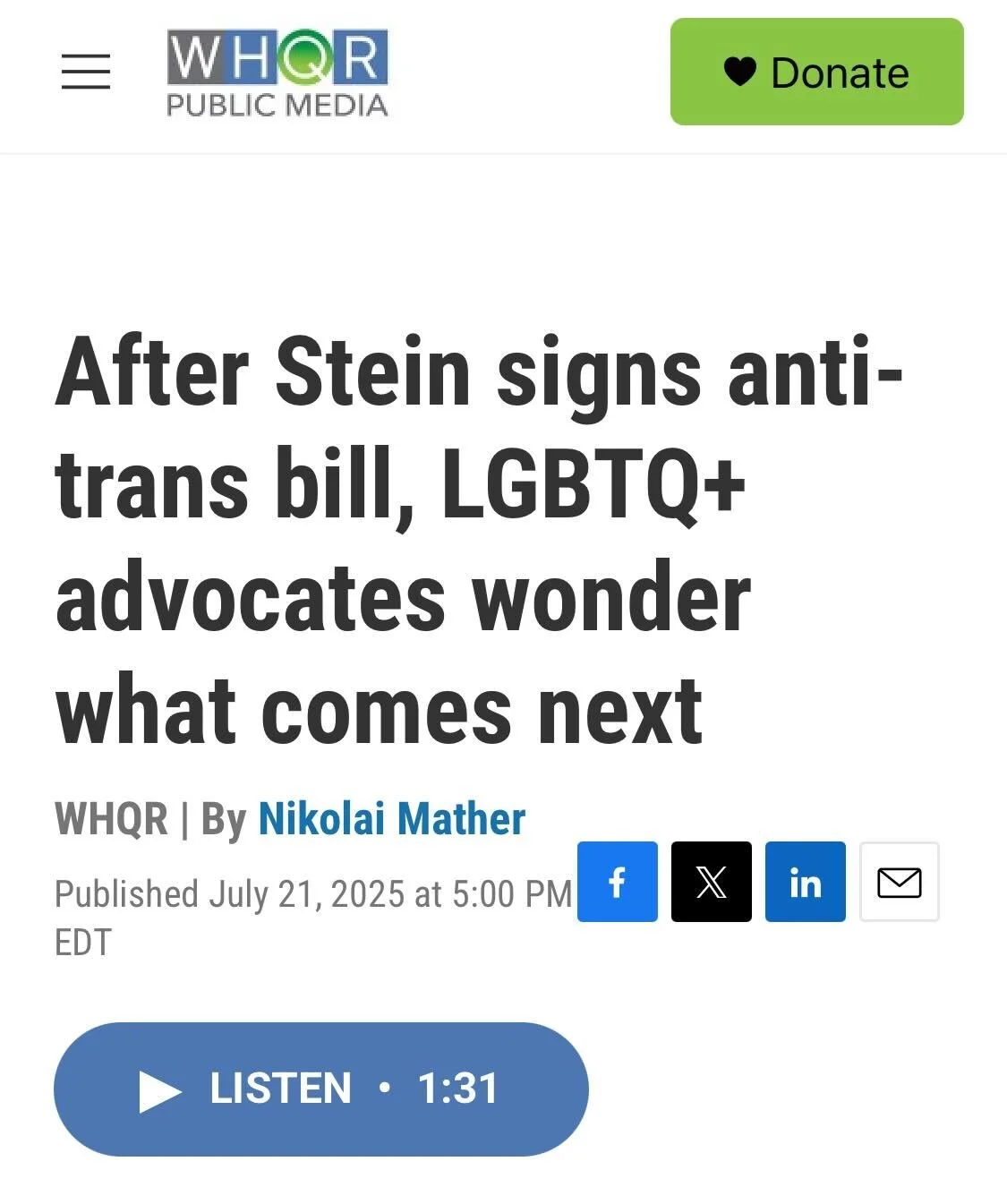After Stein signs anti-trans bill, LGBTQ+ advocates wonder what comes next
WHQR – July 22, 2025
Gov. Josh Stein vetoed an anti-trans bill he called "mean-spirited" on July 3rd. But on that same day, he signed the Parents' Protection Act, which limits child abuse protections for transgender adoptees and foster youth. Now, some foster families and advocates worry about the law's impacts — and whether state Democrats can hold the line against other anti-trans legislation.
Many foster parents were caught off guard by the passage of the Parents’ Protection Act, including a woman in Asheville, North Carolina, who spoke to WHQR on the condition of anonymity to avoid harassment. Since 2020, she and her partner have opened their home to young people in need, with a special emphasis on queer and trans youth.
"With us being a queer family, we told our agency, like, 'Bring us all the baby queers!'" she said. "We wanted to be supportive because finding a home that is open to trans youth is really difficult."
The parent was surprised to learn about a new state law making it even harder for trans youth to find affirming households. The Parents Protection Act formally allows parents to raise foster and adoptive children as their biological sex, shielding parents from abuse charges over things like misgendering and deadnaming. The law also prohibits adoption agencies from discriminating on the basis of whether a parent would support a child's transition.
The Republican-sponsored bill met criticism from Democrats in the state House and Senate, but was eventually signed into law on July 3 by Governor Josh Stein. His decision sparked outrage among families and LGBTQ+ advocates, many of whom were counting on North Carolina Democrats to defend trans rights. Now, they're unsure whether Democrats will protect trans people from future legislation.
"That is not what I voted for," the parent said. "I'm pretty upset about it, actually."
What the Parents Protection Act does
Gaile Osborne from the Foster Family Alliance of North Carolina has an expression for the dilemma facing North Carolina's foster kids.
"I say, 'we're bleeding families,'" she told WHQR. "Basically, the shortage is not just a shortage, it is a crisis."
Some Republican legislators have said this bill is meant to address that shortage by allowing more families to join the foster system. Osborne disagrees. She thinks it will create a chilling effect.
"When you start having bills that are presented like this — where you can't do XYZ, you can do XYZ, where there's gray area and subjective opinions and things like that — we're going to scare off our affirming families," she said.

